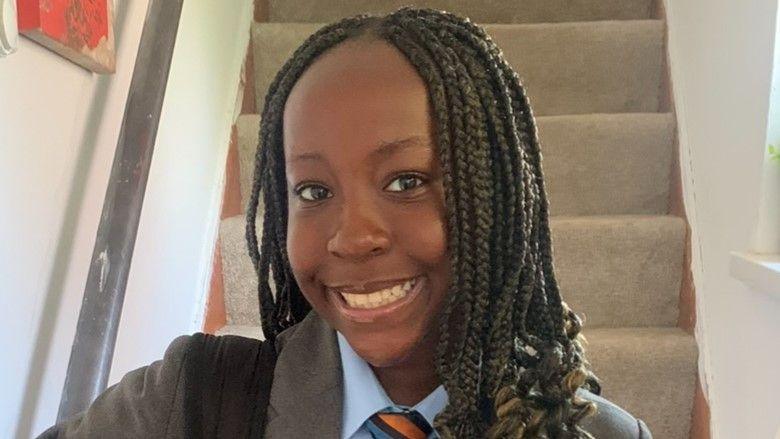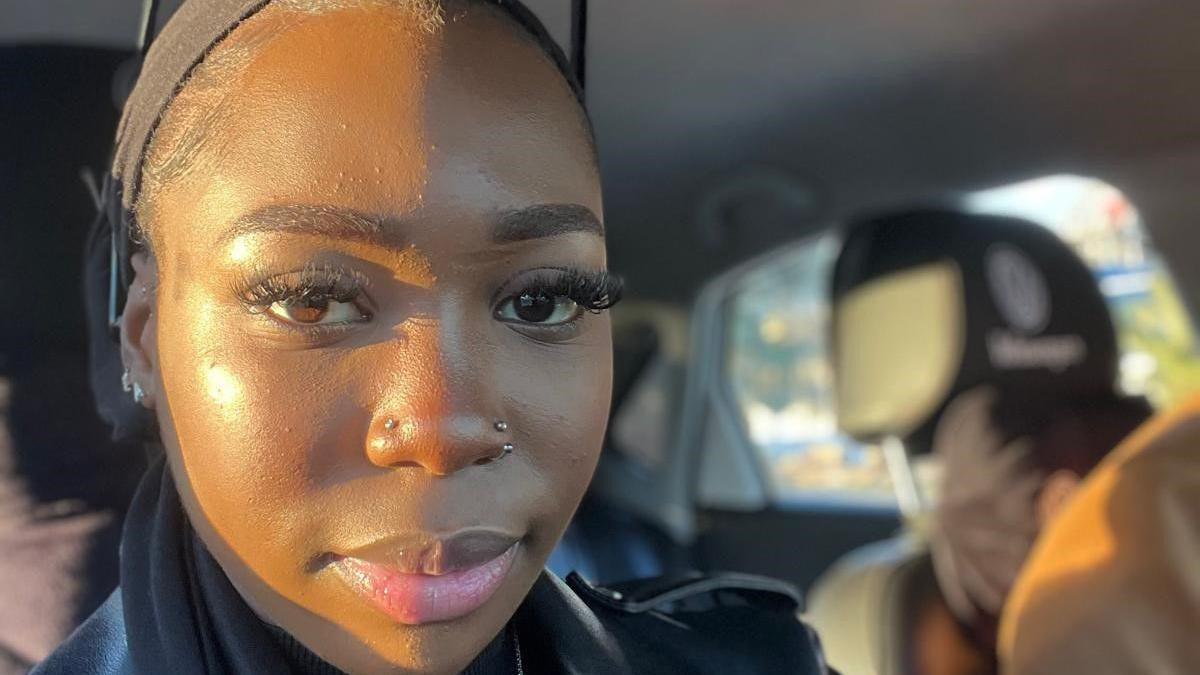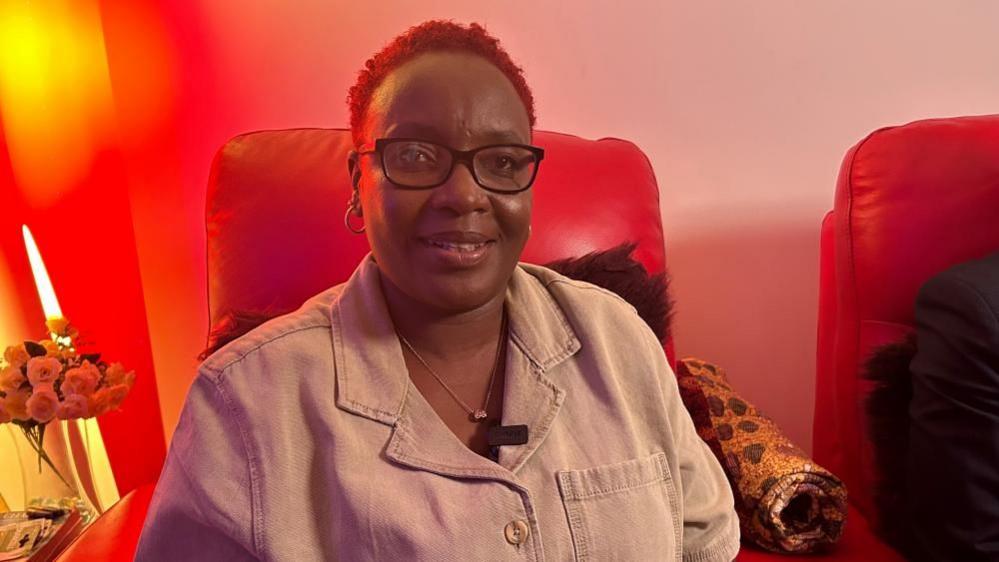Teen's memory to live on in sickle cell foundation

Vivica dreamed of becoming an architect and travelling the world, her sister said
- Published
The grieving sister of a 15-year-old girl who died with sickle cell disease says she wants to honour her memory by raising awareness of the blood disorder.
Vivica, from Ipswich, was born with the life-threatening condition which causes intense pain when blood vessels become blocked by misshapen red cells.
The Chantry Academy pupil appeared to be rallying after a bone marrow transplant from sister Chelsea, but she deteriorated last month and died on 1 July.
"We were really hopeful. We thought the transplant went really well, but it went downhill, which has been a huge shock," said Chelsea.
"She fought it for a long time and was always able to get back up.
"It was always very difficult to watch, because as an older sister you want to protect your younger sibling, but I was always encouraged by her strength."

Chelsea (left) and Vivica were very close
About 15,000 people in England live with the inherited condition, which affects people mainly of Black African and Black Caribbean heritage.
Red blood cells are produced in a sickle shape and are stiff and sticky rather than flexible smooth discs, and they do not live as long as healthy red blood cells.
The cells can clump as they travel around blood vessels – reducing oxygen to vital parts of the body, putting people at risk of organ damage, stroke and heart failure, and leading to a greatly reduced quality of life.
Vivica had received care at Ipswich Hospital, Addenbrooke's Hospital in Cambridge, and St Mary's Hospital in London, with the family encountering some clinicians who did not fully understand the condition.
That is one of the reasons why Chelsea and her parents want to honour Vivica with a foundation called LLV (which stands for Long Live Vivica).
The acronym was created by friends who were deeply affected by her death, with some of them scrawling her name or LLV on the back of their school shirts, Chelsea said.
"We have always discussed shining a light on sickle cell disease," she said.
"It's the biggest growing blood condition in the UK but I feel it's really under-represented.
"It was really traumatic experience for us, and we wouldn't want anyone to go through this."
The foundation would support children and family members affected by the condition and raise its profile, including with policymakers and in schools.
"I know it's something she would have wanted," Chelsea explained.
Chelsea, 25, said she and Vivica would spend "countless hours" together having fun, and would chat late into the evenings.
"Having her as my sister was an absolute joy for me; we were really close," she added.
"She adored being around other people. She really came out when she was around her close friends, especially planning things, doing make-up – she was really girly."
Get in touch
Do you have a story suggestion for Suffolk?
Follow Suffolk news on BBC Sounds, Facebook, external, Instagram, external and X, external.
Related topics
- Published31 January

- Published6 November 2024
